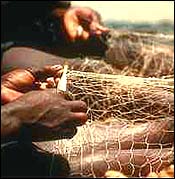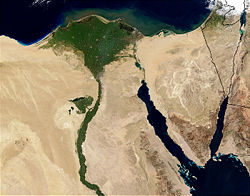The journey of Abraham and four generations of his descendents follows the arc of the Fertile Crescent from the famed Tigris-Euphrates valley in the east, or Mesopotamia as it was known, to the Nile Delta in the west.
Mesopotamia, the land between the rivers, was the cradle of one of the earliest civilizations on earth. It already had two thousand years of commerce, culture and tradition when Abraham was born in Ur on the south bank of the Euphrates. Lying just west of the point where the two mighty rivers joined before flowing into the Persian Gulf, Ur was a prosperous and proud culture, living off the largess of the two rivers.

Mesopotamia was water-rich. The Tigris rises in the Taurus Mountains 1,000 miles to the northwest. Less than a hundred miles away, the Euphrates flows first westerly then it curls around to the southeast and flows in a roughly parallel direction to the Tigris, draining a vast region of hills in their early miles and then meandering a thousand kilometers across the plains. Early settlers in Mesopotamia developed extensive irrigation systems and levees to enhance the use of water for agriculture. Traders brought goods and wealth from far afield and the commercial expertise of the Mesopotamians fostered the development of cuneiform script, the earliest known system of writing.
The name Euphrates derives from the Persian word for 'the good', but the Bible is not particularly impressed with the good life in Ur or the whole Mesopotamian culture. Instead, it tells the story of a man and his descendents who deliberately the cultural and economic amenities of Ur and travelled west in search of a very different kind of civilization.
As Thomas Cahill tells it in
The Gifts of the Jews, it would have seemed to everyone in Ur that this was a migration in the wrong direction. But in fact this peculiar migration became 'a hinge of history changing the way everyone in the world today thinks and feels.'
Genesis 12 tells of the summons of a god named Yahweh who said to Abram
“Leave your country, your people and your father’s household and go (or come) to the land I will show you. I will make you into a great nation and I will bless you.”
So Abraham left this land of abundance and travelled to a place where water was much less available. In the course of this adventure he would learn that God, the designer of rivers, is also the spring of a different kind of water, living water and the headwaters of every stream that enriches our lives. Nevertheless, Abraham also had to work hard to support his herds and flocks in a land of minimal rain or surface water.
Image Sources:
Map: Ancient History Encyclopedia
Euphrates: Ferrell Jenkins
Book: Amazon.com























